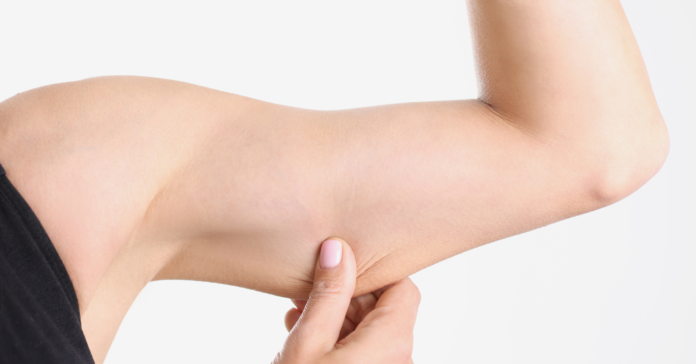It could be your behaviour outside of the gym undermining your efforts and even making you store fat if you’re utilizing those strength training machines and eating a lot of protein but still not seeing benefits. Here’s a brief overview of muscle loss to help you narrow your search.
1) Fish is important
You must consume oily fish like salmon or halibut to get enough omega-3 fatty acids, which are good for your heart and build muscle.
Omega 3 fatty acids can aid in enhancing muscle cells’ sensitivity to insulin, enhancing the muscles’ capacity to utilize the protein you consume. Omega-3 fatty acids can also aid the body’s capacity to lessen muscle protein breakdown by improving insulin sensitivity.
2) Vitamin D is important
The best source of vitamin D is sunlight, so if you don’t get enough of it or are taking pills, you risk losing muscle. Although vitamin D has long been emphasized for its role in calcium absorption to support bone health, it also contributes to muscular growth. Additionally, as you age, your ability to absorb vitamin D weakens, so you must be more careful to eat the right foods.
As often as you can, try to spend a few minutes in the sun on your arms and face. Also, talk to your doctor about getting your vitamin D levels checked; you may need to take a supplement. It’s pretty common to be deficient in vitamin D.
3) Do not skip meals
Kilojoule slashing is a practice that has grown popular in the world of fitness, but it is foolish because your body requires kilojoules to sustain and develop muscle. Instead, the habit may decrease your metabolism, result in muscle loss, and cause you to retain fat. In order to maintain your metabolism up and your muscles fueled, it is important to eat balanced meals.
4) Carbs are important
Reducing processed and refined carbohydrates can improve your health and reduce your waistline, but don’t sacrifice the healthy, complex carbohydrates. Usually excluded from diets, carbohydrates are absolutely necessary for muscle repair following exercise. Carbs are broken down and stored in your muscles and liver as glycogen, which is then immediately available to fuel your body.
Without the carbs, the body won’t be able to retain the glycogen, and this will result in muscular breakdown.
5) Exercise is important when you have chronic pain
Exercise and strength training are two natural strategies to reduce pain if you experience chronic pain. If you want to identify the best low-impact activities, you might want to consult a specialist. Losing muscle mass might happen if you avoid exercising due to chronic pain. Additionally, exercising will lessen your joint pain while helping to maintain muscle.
6) Hydrate yourself
Your muscles, like the rest of you, are in dire need of hydration. Dehydration might prevent muscles from properly contracting, which lowers muscle tone because muscles contain a lot of water.
Aim for nine cups of liquid every day. However, pay attention to your body since you might require more. You’ll require more if you exercise for a long time or are really active during the day.
7) Include proteins in your diet
Even while a bag of chips can taste wonderful, they probably don’t contain enough protein to help develop muscle. Instead, try some nuts or seeds; they will satisfy your desire for a savoury snack and will also provide your muscles nourishment.
Additionally, it’s a good idea to spread out your protein consumption throughout the day. Aim for five to six meals and/or snacks per day.
8) Get enough sleep
The best time for muscle growth and regeneration is while you sleep.
Growth hormone is created and protein synthesis takes place when you sleep. Increased energy and the restoration and repair of muscles, as well as other body tissues and cells, are the key advantages of obtaining enough sleep. You may feel weak, lethargic, and less energized if you don’t get enough rest, which will affect the effectiveness of your workouts and lead to muscle loss. daily goal: seven to eight hours of sleep.
9) Slow down on your alcohol consumption
Sometimes it’s difficult to resist that glass of wine, but if you drink too much, you could be losing some important muscle. Your body becomes dehydrated when you drink, which can cause muscle loss. This association between drinking alcohol and muscle loss is much more pronounced as you age and accelerates throughout menopause.
10) If you’re injured or bedridden
Lean muscle mass loss may occur if you’ve been injured or inactive for several days or weeks at a time. According to research, elderly persons who spend three days in bed may lose up to 10% of their entire leg muscle mass. Additionally, for many people, post-operative nausea might keep them from eating for up to three to four days, resulting in muscle weakness.
Increase your intake of high-quality proteins and complex carbs before and after surgery to aid in your recuperation. After surgery, your body continues to burn kilojoules while you’re sleeping to aid in your recovery, the expert claims. And don’t remain stationary any longer than is necessary. Getting up and moving as soon as possible after a procedure or hospital stay can help you preserve lean muscle, stay strong, and make a quicker transition back into your regular routine.


